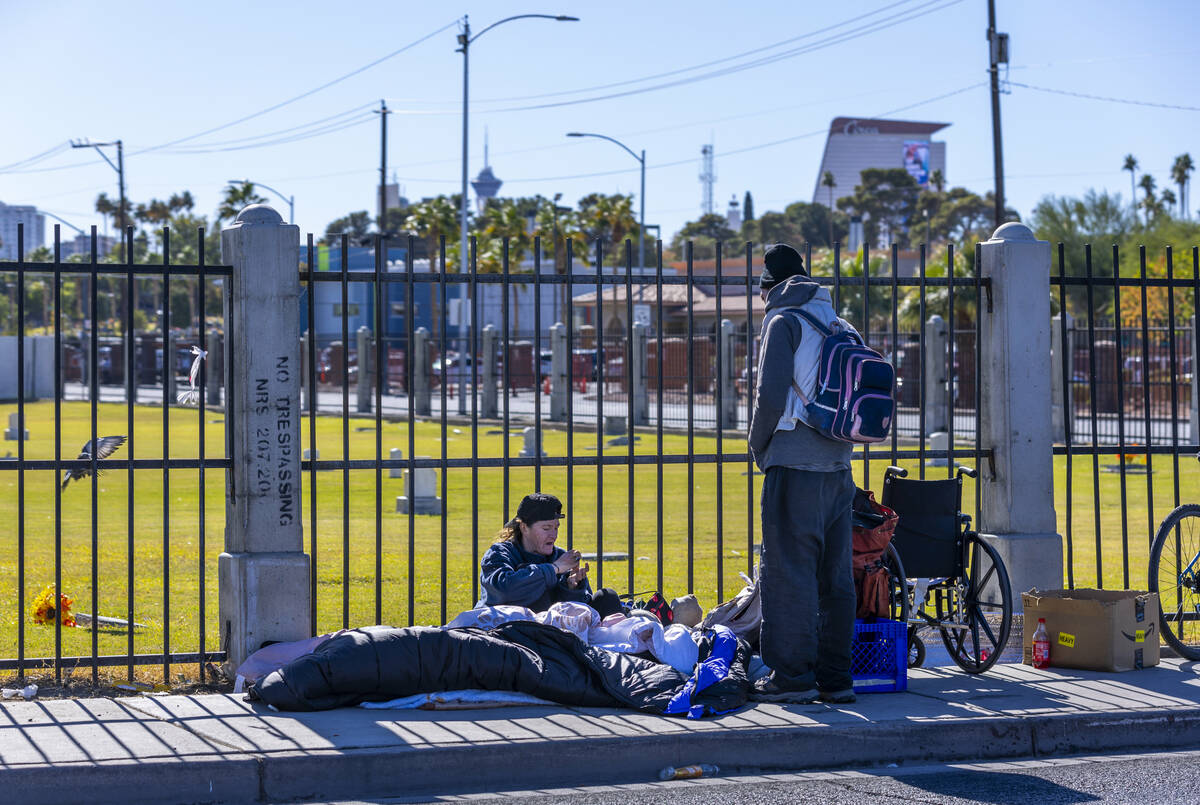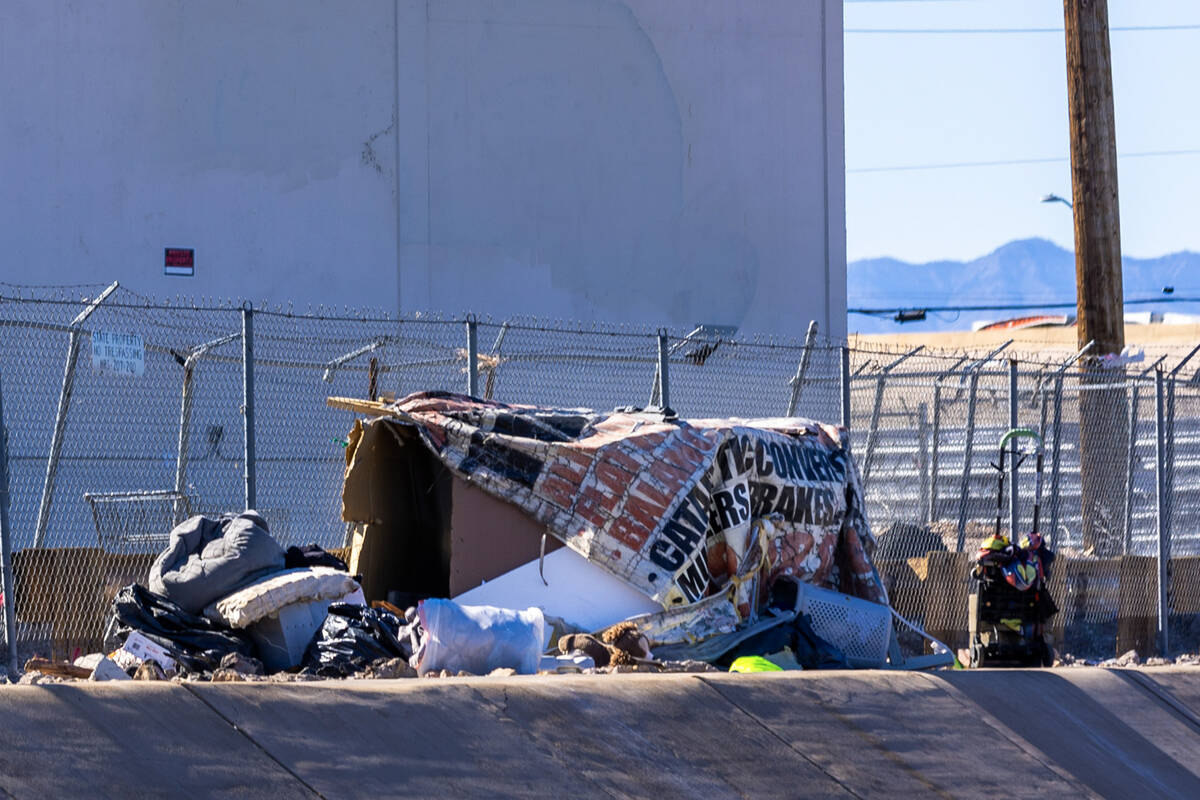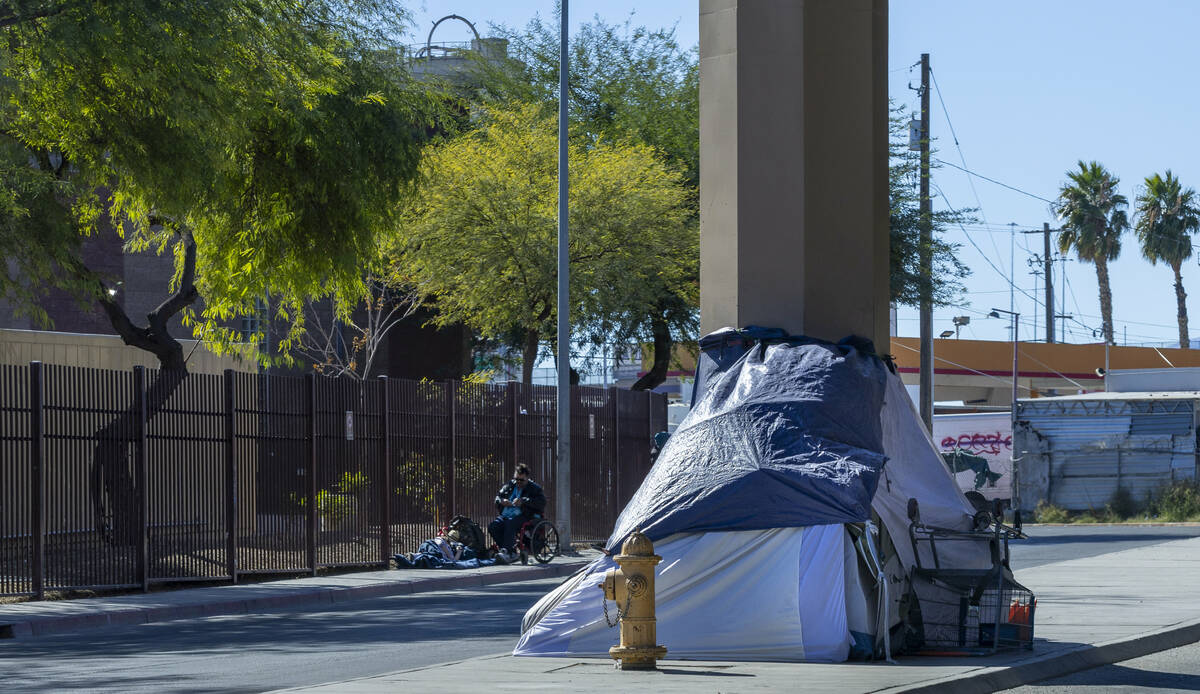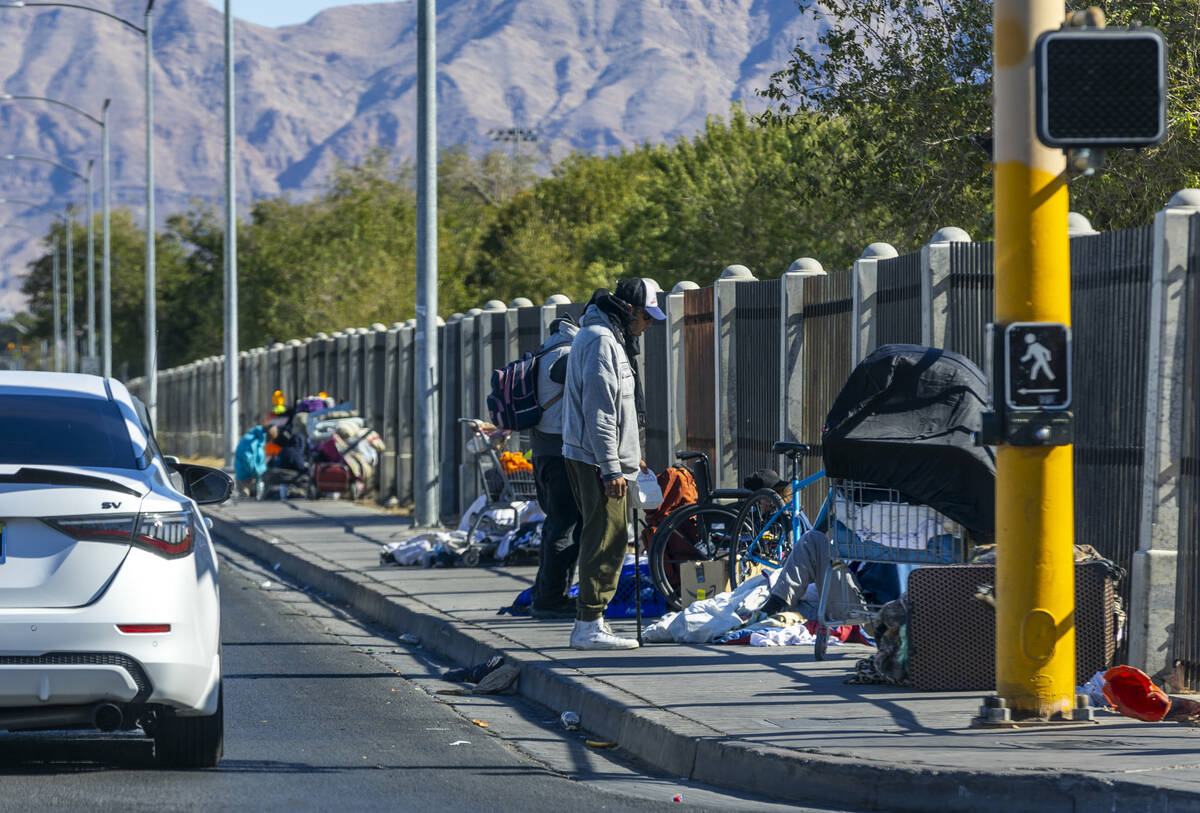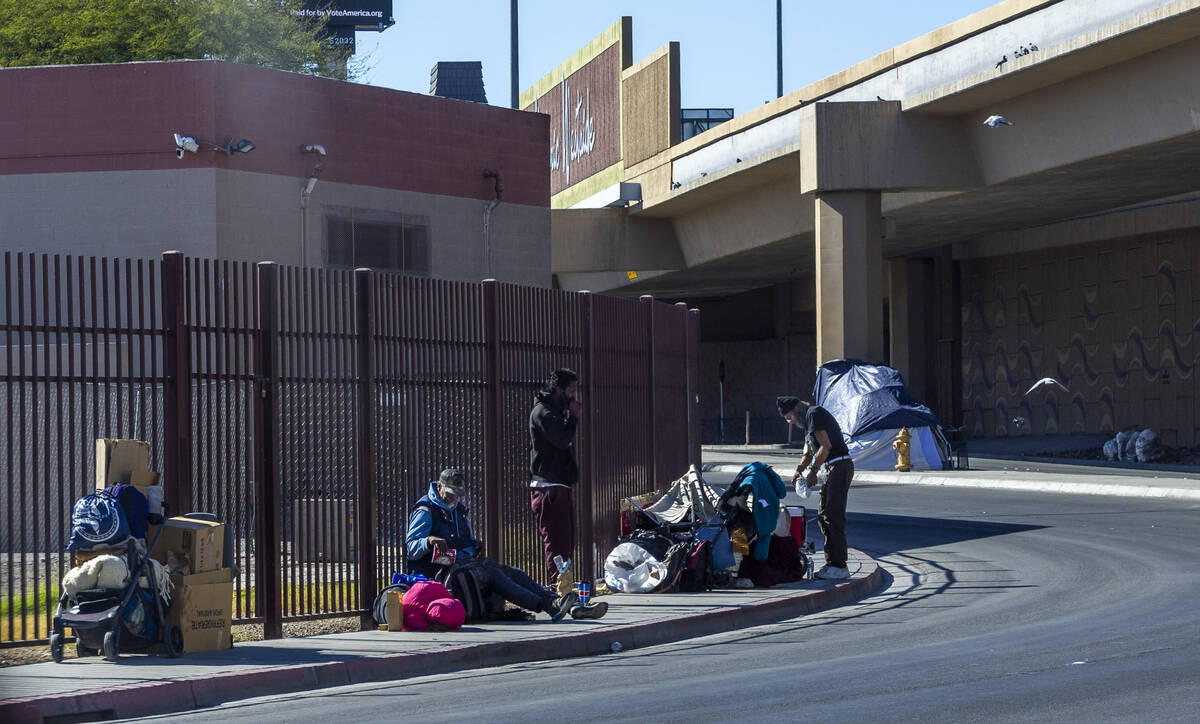Las Vegas puts more muscle behind camping ban that affects homeless
The Las Vegas City Council voted Wednesday to strengthen a camping ban that affects homeless people who sleep and gather in public spaces.
Council members voted 6-0 to amend the ordinance without public discussion. The development occurred after the Clark County Commission on Tuesday adopted its own, new camping ban, which takes effect Feb. 1.
The city’s law, which took effect in 2020, applies to public streets, alleys, sidewalks, trails and washes.
The amended ordinance — which goes into effect Sunday — adds possible penalties, such as mandatory jail sentences, and removes a provision that the law could not be enforced if there were no public shelter space available.
Before people are penalized with a written warning or fine, they must first be told that they are violating the ordinance and be told about social services, according to the ordinance.
Any person convicted of the misdemeanor offense more than twice within a year is subject to a jail sentence of up to 10 days.
As an alternative to the jail term, “a court may order a defendant to complete a rehabilitation program, specialty court program or other program of treatment designed to assist homeless persons,” according to the city’s ordinance.
Adjusting to Supreme Court ruling
The city said the amendment came in response to a U.S. Supreme Court ruling this year.
Las Vegas and the city of Henderson, which also has a camping ban, had signed onto a “friend of the court” brief supporting Grants Pass, Oregon, where the Supreme Court case originated, and where fines for people found sleeping outdoors were in question.
The justices overturned a lower court decision from 2018 that stated camping bans amounted to cruel and unusual punishment when shelter space was lacking.
Las Vegas previously said the amended ordinance “mostly mirrors” the law already in place and that its outreach to the homeless community offering social services hasn’t changed.
“The ordinance is intended to give unhoused individuals a choice to get assistance so that they no longer have to live in unsafe and unsanitary conditions on the street,” the city said.
Opponents have argued that such bans criminalize homelessness.
“This isn’t simply an ordinance to help clean sidewalks or guide unhoused individuals to services,” countered Elizabeth Becker of the Progressive Leadership Alliance of Nevada at a previous City Council meeting.
Becker said the bans trap homeless people in the legal system “simply for existing in public spaces.”
Attorney Tia Smith with the American Civil Liberties Union of Nevada had warned the city that the ordinance opened Las Vegas up to possible litigation.
While the higher court declared that the bans do not violate the Eighth Amendment, she said, it did not “declare that such ordinances are entirely permissible or constitutionally valid.”
She added: “Law enforcement officers will be tasked with enforcing the ordinance on a case-by-case basis, leading to confusion and inconsistency.”
Clark County’s ban and the city’s amendment came after the county in September released results of a daylong census that found a 20 percent year-over-year increase among the sheltered and unsheltered homeless population in Southern Nevada, the highest number since 2014.
Volunteers in January tallied 4,202 people living on the streets, a 7 percent increase from the previous year, according to the Southern Nevada Homelessness Continuum of Care census.
Contact Ricardo Torres-Cortez at rtorres@reviewjournal.com Follow on X @rickytwrites.



